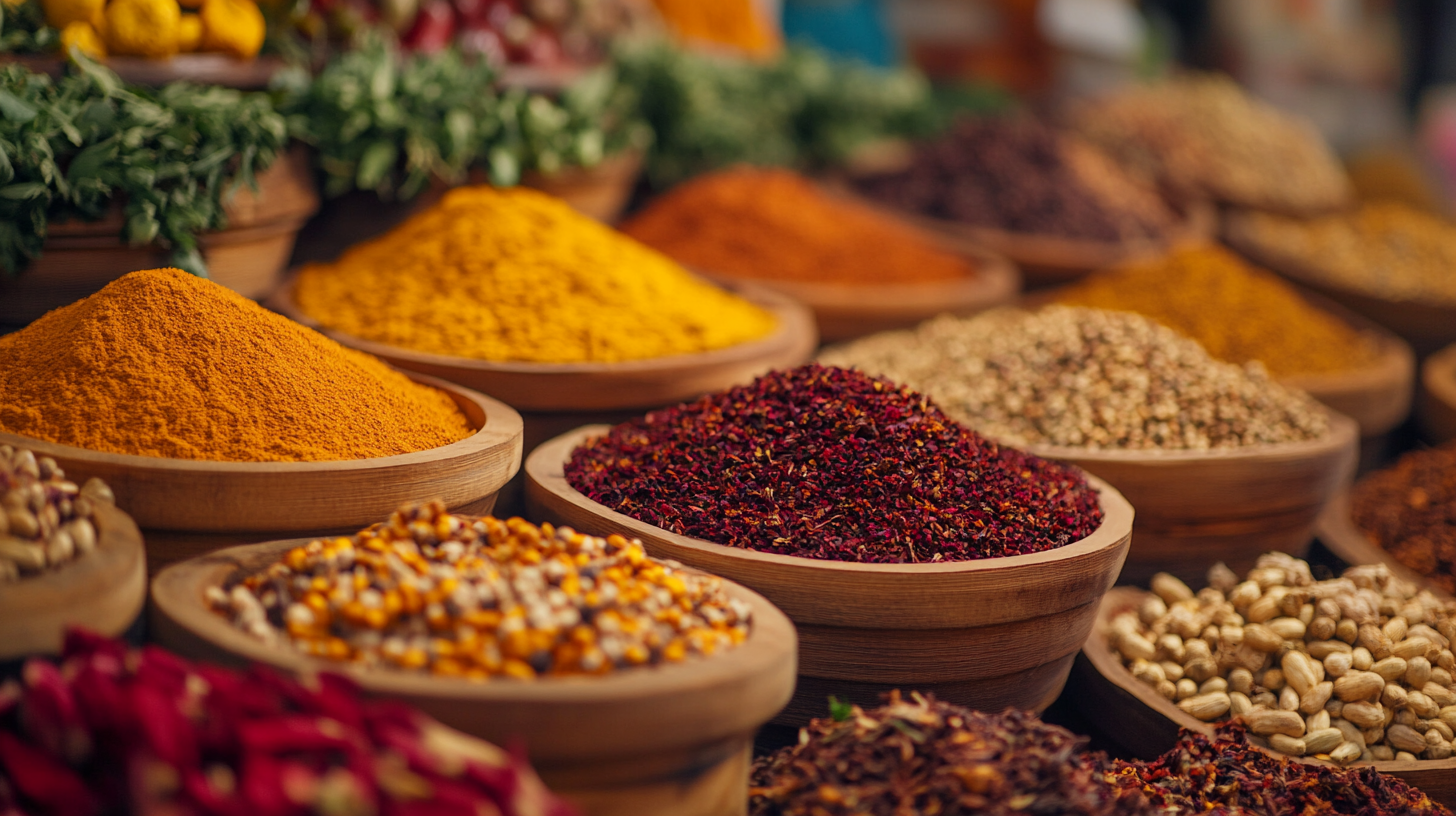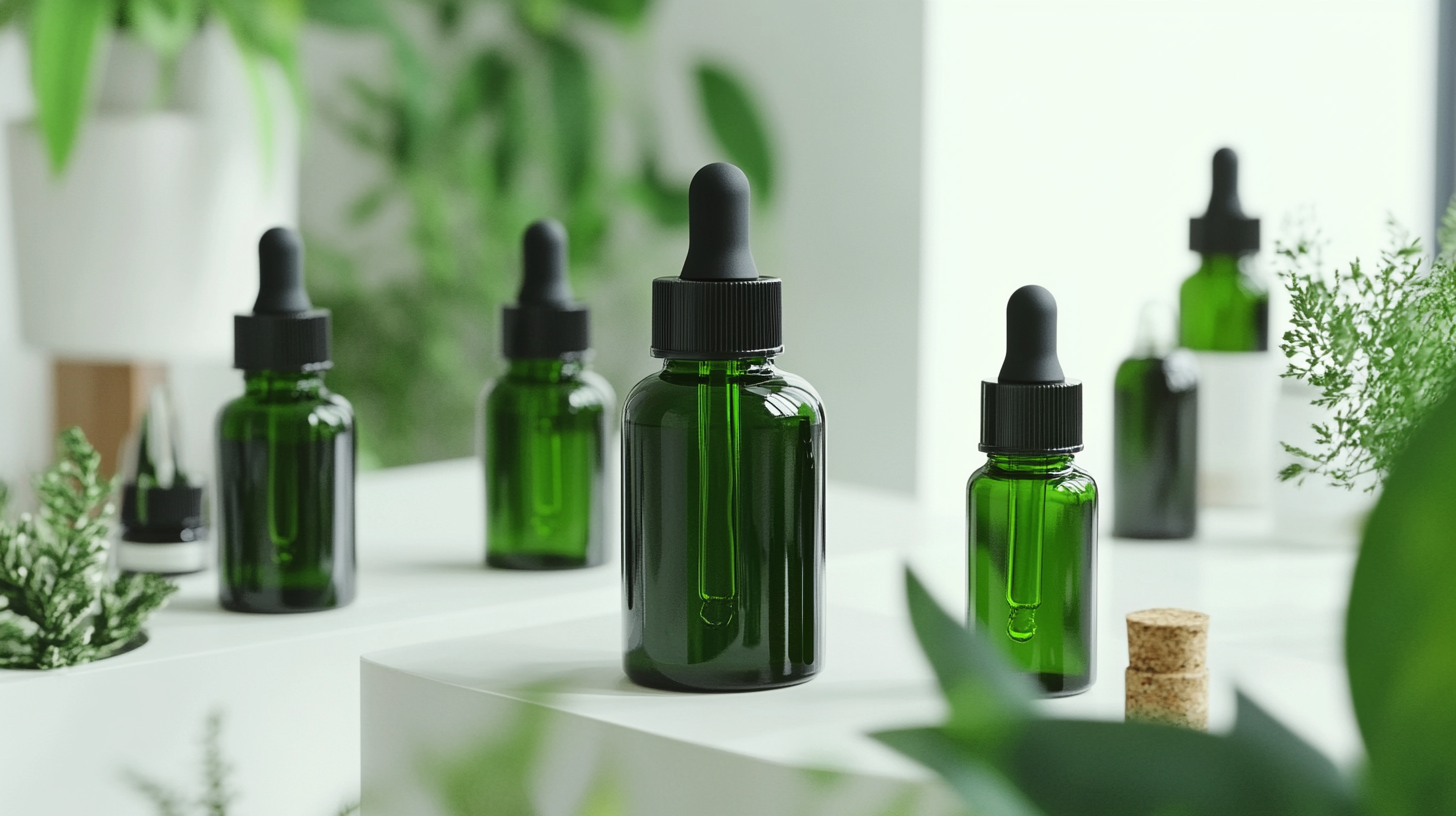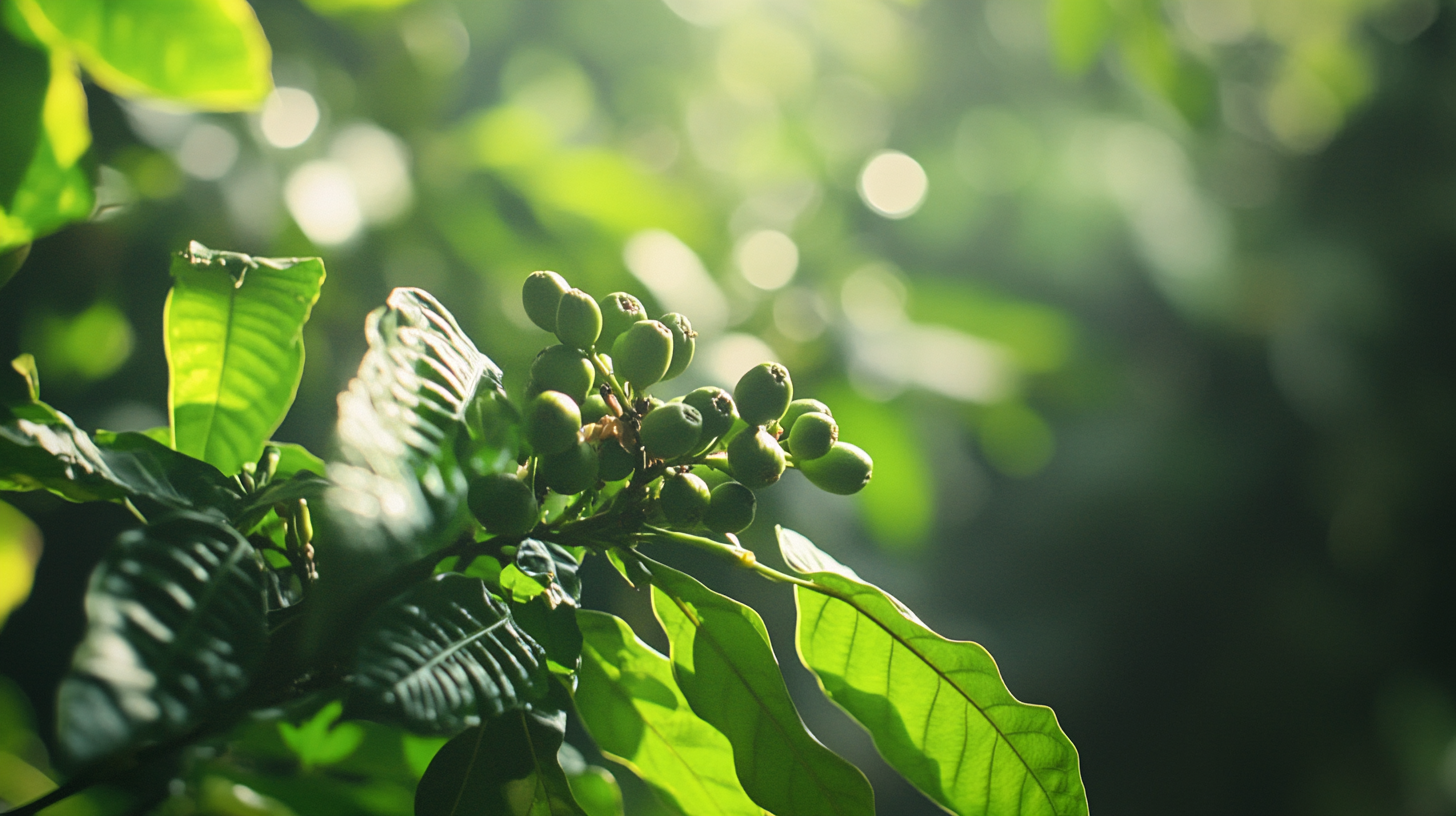In recent years, there has been a significant shift towards natural and organic products, prompting a growing interest in Organic Botanical Extracts. These extracts, derived from a variety of plants, offer an array of health benefits and are becoming staples in various industries, including cosmetics, pharmaceuticals, and food and beverage. The increasing consumer demand for clean-label and environmentally friendly solutions has intensified the importance of sourcing high-quality Organic Botanical Extracts. In this comprehensive guide, we aim to explore the unique benefits that these extracts offer, while also providing valuable insights for buyers seeking to navigate the global marketplace.
As the market for Organic Botanical Extracts continues to expand, understanding the sourcing landscape is crucial for making informed purchasing decisions. This blog will delve into the diverse properties of organic extracts, highlighting their efficacy, sustainability, and versatility. From skincare formulations to dietary supplements, the transformative power of Organic Botanical Extracts cannot be overstated. Join us as we uncover the essential factors to consider when sourcing these valuable ingredients and the exciting opportunities that await in this rapidly evolving sector.

The rising demand for organic botanical extracts in global markets highlights a significant shift in consumer preferences towards natural and sustainable ingredients. As the global skincare market anticipates a notable growth from $122.11 billion in 2025 to $194.05 billion, it becomes evident that consumers are increasingly seeking products that align with a holistic lifestyle. The integration of organic botanicals into skincare formulations not only enhances efficacy but also reflects a growing awareness of the environmental impact of synthetic ingredients. Market segments such as the CO2 extract market are projected to expand at a CAGR of 4.8%, indicating a robust appetite for organic solutions that harness the full potential of plant-based extracts. Furthermore, the burgeoning interest in natural and organic personal care products, forecasted to grow by USD 12.37 billion between 2025 and 2029, underscores the pivotal role of female consumers in driving this trend. Their preference for clean beauty products is reshaping industry standards and encouraging brands to innovate with organic ingredients. Particularly noteworthy is the strong growth anticipated in specific extracts like neem and turmeric. The neem extracts market, valued at approximately USD 2.13 billion in 2023, is expected to register a CAGR of over 9.6% through 2032, while turmeric oleoresin is projected to reach USD 192.2 million by 2034 with a CAGR of 8.8%. These figures not only reflect the growing consumer interest but also the significant business opportunities for buyers in the organic botanical extracts space, encouraging a thorough exploration of global sourcing options.

The global demand for organic botanical extracts is significantly influenced by regional preferences, driven by diverse applications across food, beverages, and health sectors. A notable player in this market is the Amla extract segment, which is projected to see substantial growth by 2033. The Amla extract market is categorized by product type, including powders, liquids, and capsules/tablets, reflecting a variety of consumer preferences in different regions. As health-conscious consumers seek natural alternatives, the market is poised to expand rapidly, with many regions showing a heightened demand for natural health supplements.
Another critical segment is the tea extracts market, valued at approximately $3.2 billion in 2023 and anticipated to reach $4.8 billion by 2030, showcasing a robust compound annual growth rate (CAGR) of 6% from 2023. This growth can be attributed to the increasing popularity of health-focused beverages and the growing trend of incorporating functional ingredients in daily diets. Various tea extracts are becoming sought after for their health benefits, making them an essential area for buyers exploring organic options.
The mushroom extracts segment also exemplifies evolving market preferences, with an estimated market size of $11,957.6 million in 2023 and expected to grow at a CAGR of 10.1% until 2030. This rapid growth is fueled by the rising consumer interest in micro-nutrients and functional food trends, emphasizing the benefits of medicinal mushrooms in promoting overall health. Regional consumers are driving demand for diverse mushroom extracts, influencing sourcing decisions for manufacturers and buyers alike.
As buyers navigate the global landscape of organic extracts, understanding these trends and market dynamics is crucial for successful sourcing. By recognizing regional preferences and emerging market opportunities, businesses can align their strategies to cater to the growing demand for organic botanical extracts effectively.

Organic botanical extracts have garnered significant attention in recent years for their nutritional and therapeutic benefits, supported by a growing body of scientific evidence. A report published by Grand View Research highlights that the global organic extract market is projected to reach $15.2 billion by 2027, reflecting a shift towards natural and plant-based ingredients in various industries, including food, cosmetics, and pharmaceuticals. This trend is partly driven by increasing consumer awareness of health and wellness, pushing buyers to seek out organic options that offer superior bioactivity and fewer side effects.
Research studies underscore the advantageous properties of organic botanicals. For instance, a comprehensive review in the Journal of Ethnopharmacology noted that many organic extracts possess antioxidant, anti-inflammatory, and antimicrobial properties, making them invaluable in the formulation of dietary supplements. The presence of phytochemicals, such as polyphenols and flavonoids, in these extracts has been associated with enhanced immune function and chronic disease prevention. In another study published in the International Journal of Food Sciences and Nutrition, it was found that organic herbal extracts exhibit higher levels of beneficial compounds compared to their conventional counterparts, reinforcing the idea that organic sourcing not only supports better health but also aligns with sustainability goals.
Furthermore, the therapeutic potential of organic botanical extracts expands beyond nutritional benefits. The World Health Organization has acknowledged the importance of traditional medicine, where many organic plants play a crucial role in alleviating diverse health issues. For example, turmeric and its active compound curcumin have been extensively studied for their anti-inflammatory effects, proving beneficial for conditions like arthritis. As the demand for organic ingredients continues to rise, it is essential for buyers to understand the science behind these botanical extracts, ensuring they make informed decisions that contribute to both health and environmental well-being.

In the rapidly evolving botanical extract industry, sustainability is becoming a cornerstone of sourcing practices. With consumers increasingly prioritizing ethical and eco-friendly products, businesses are responding by adopting comprehensive sustainability strategies. For instance, a recent report by the Sustainability Consortium found that 66% of consumers are willing to pay more for products made with sustainable materials, highlighting a significant shift in purchasing behavior. This trend is particularly relevant in the botanical sector, where companies like Kats Botanicals are setting the standard with their commitment to transparency and responsibility.
Kats Botanicals, recognized for their high-quality kratom strains and extracts, exemplifies the shift towards sustainable sourcing. Their practices include rigorous lab testing for purity and potency, ensuring that their products not only meet health standards but also align with ethical sourcing. Furthermore, as the eco-friendly perfume movement gains momentum, many brands are incorporating botanical extracts that emphasize sustainability. The incorporation of organic materials not only reduces the environmental footprint but also resonates with a growing demographic of conscious consumers.
Moreover, a PDF report from the Ellen MacArthur Foundation emphasizes the need for industries to transition towards circular economies, where materials are reused, recycled, and sustainably sourced. This approach is increasingly being adopted in the botanical extract industry, ensuring that sourcing methods do not compromise the health of ecosystems. By prioritizing ethical practices and sustainability, companies can innovate and support the long-term health of both consumers and the environment, forging a path for a more responsible industry.
As the demand for natural and organic cosmetics surges amid the green beauty boom, understanding the regulatory landscape has become crucial for buyers of organic botanical extracts. With an array of certification options emerging, brands must navigate a complex web of standards that can significantly impact their marketability. The push for transparency is evident as consumers become increasingly discerning, prioritizing products that meet established organic criteria. According to a report by Grand View Research, the global organic skincare market is projected to expand at a CAGR of 9.7% from 2021 to 2028, reflecting a growing preference for certified organic ingredients.
However, the regulatory environment is not static. For instance, the anticipated changes in 2024 bring stricter regulations surrounding organic certifications, which will likely increase scrutiny on supply chains and ingredient sourcing. Brands must prepare to adapt to these evolving standards if they want to remain competitive. The certification process ensures that products labeled as organic meet high-quality benchmarks, thereby enhancing consumer trust. Recent discussions highlighted the importance of organizations like the USDA and other certifying bodies, which play pivotal roles in maintaining these standards.
Moreover, trends in cannabis certification are also gaining traction. With initiatives like Clean Green Certification providing alternatives to USDA organic standards, buyers in the botanical extract market must expand their understanding of what constitutes "organic" in diverse sectors, including hemp and botanical extracts. This diversification in certification highlights the industry's shift towards more sustainable practices and supports the rising consumer demand for ethically sourced products.
2025 Bio-Botanica, a division of Bio Answer Holdings Inc. All Rights Reserved.